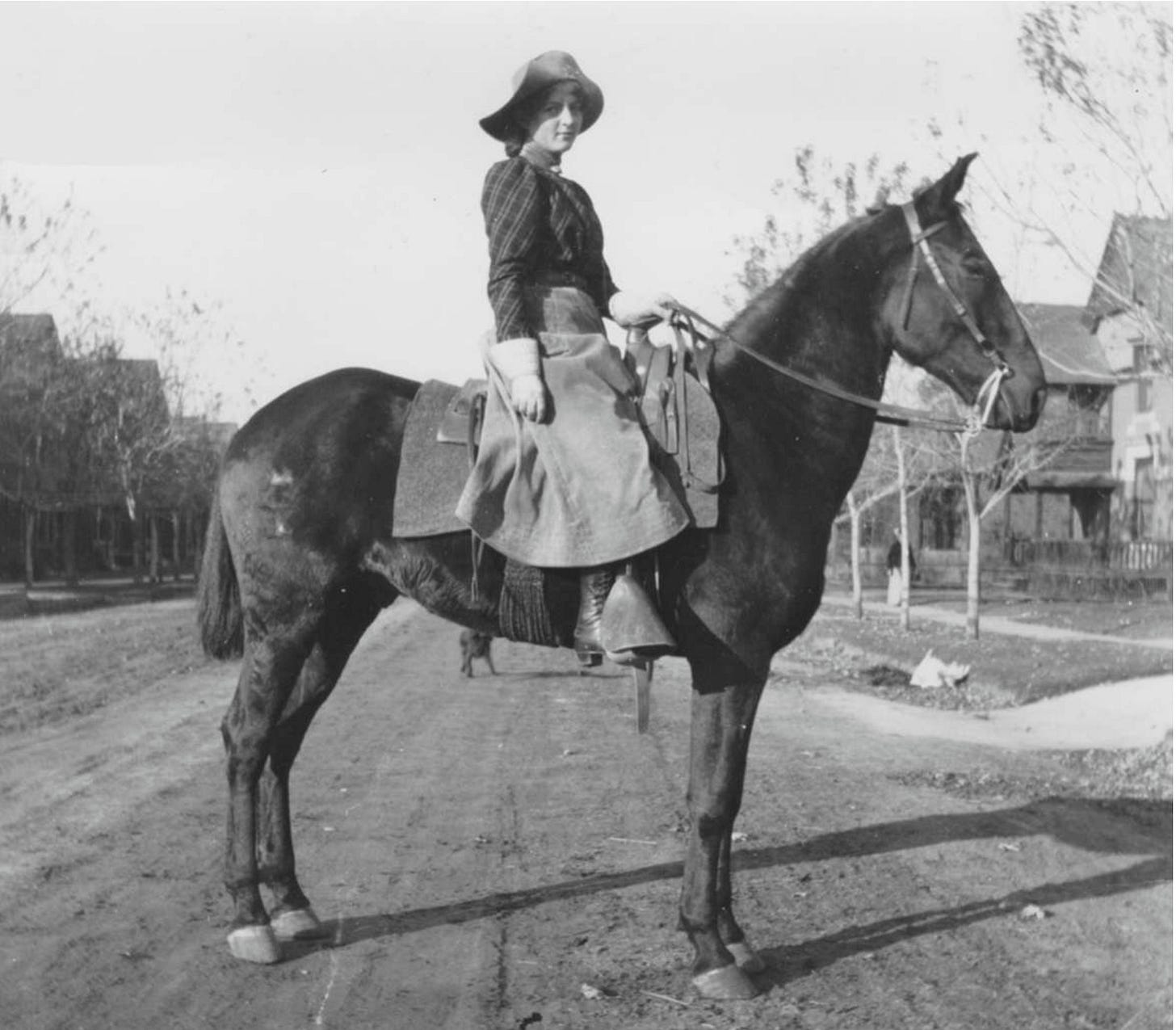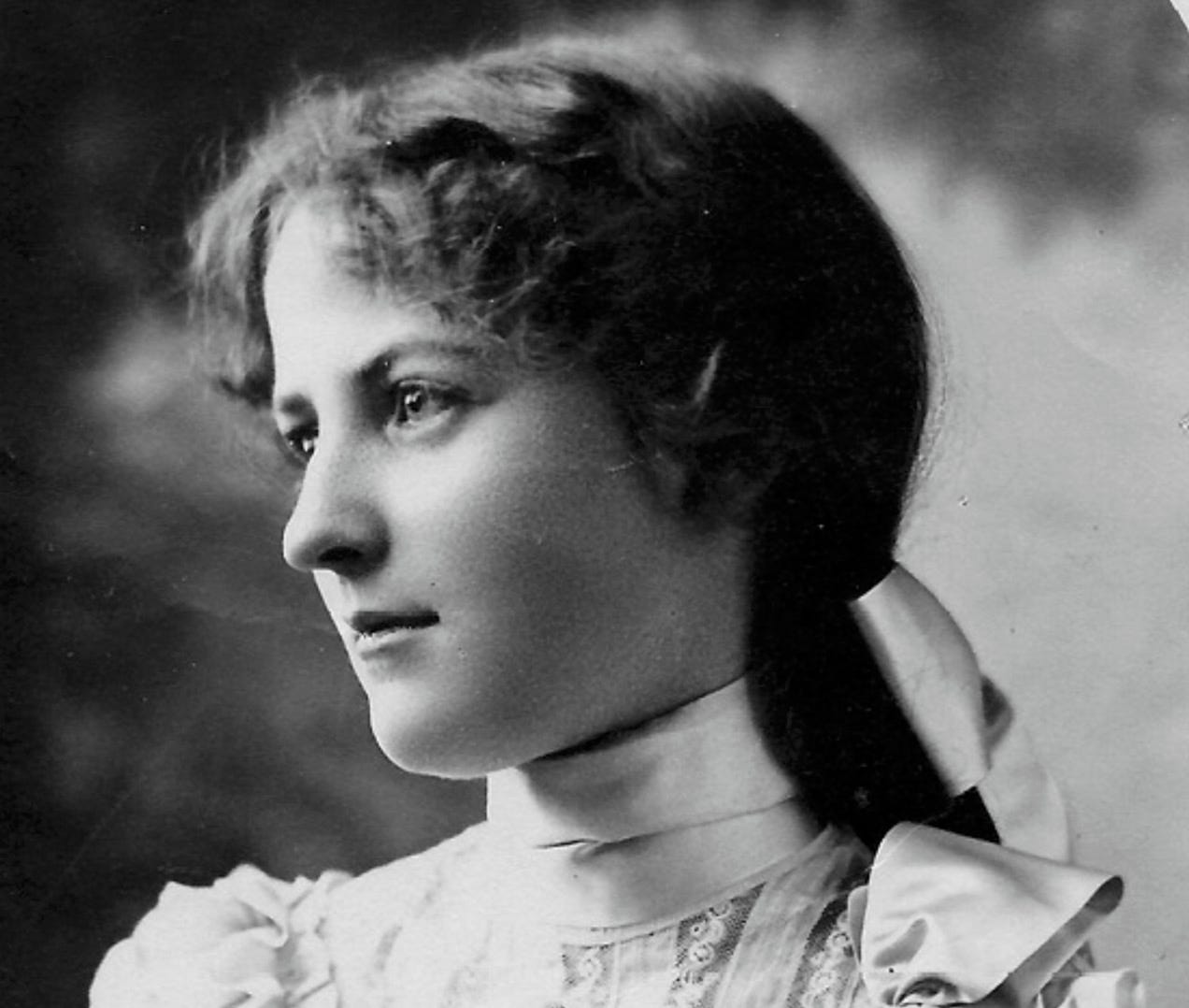A Love Story Reflecting the Heart of God
The remarkable story compiled in "Lady's Choice: Ethel Waxham's Journals and Letters, 1905-1910" illustrates a love story compelling even a century later.
The Unlikely Beginning
In the autumn of 1905, a slender young woman stepped down from a train in Rawlins, Wyoming. Her blonde hair caught the late afternoon light, while around her neck hung a Phi Beta Kappa key, evidence of her recent graduation from Wellesley College with a degree in classical literature.
Ethel Phoebe Waxham had traveled to Wyoming to teach in a one-room log cabin schoolhouse where ink froze solid in winter inkwells and snow drifts gently rose in the corners. At twenty-three, this educated daughter of Dr. Frank and Lizzie Waxham was about to encounter the raw beauty and harsh realities of frontier Wyoming.
She was also about to meet John Galloway Love.
The Persistence of Love
John Love was a thirty-five-year-old Scottish rancher who had claimed his piece of the Wyoming wilderness through sheer determination and backbreaking work. From the day he first saw her, he worked doggedly to win her over, continuing the courtship by mail after Waxham left the school.
What followed was a five-year courtship that is nothing short of legendary. Regarding his letters, Waxham wrote, “‘No’ was ‘no’ to other men, but not to him. . . . I was nearly as stubborn in refusing as he was in insisting.”
Yet something remarkable happened during those five years: Ethel saved every single letter John sent her. Everyone. From the very beginning.
The Choice That Changed Everything
When John McPhee, the acclaimed New Yorker writer and Pulitzer Prize-winning author who featured Ethel's story prominently in his geological masterwork “Rising from the Plains” discovered these journals, he found that Ethel Waxham wrote “with such wit, insight, grace, irony, compassion, sarcasm, stylistic elegance, and embracing humor that I could not resist her.” Her writing revealed not only the external struggles of frontier life but also the internal battle of an educated woman wrestling with the choices before her.
Her teaching assignments took her from Wyoming to Wisconsin and to Colorado, but John's letters followed her wherever she went.
The Wit and Wisdom of Ethel
Ethel had a fantastic sense of humor. When a difficult wood stove, at last, began to function correctly, she wrote that: “The stove has developed a conscience.”
Ethel's students became characters in her ongoing drama. When she asked one gangly fellow how many eights were in ninety-six, “Finally,” she writes, “he says with such a winsome smile that I wish with all my heart it were true—‘Two.’”
She taught for a time at Central High School in Pueblo, Colorado, and lived in the home of Mrs. Butler, where she wrote to Mr. Love: “Mrs. Butler…is a little war-horse of a woman with a long, thin husband. I’m telling you about her because she has been improving him for about twenty years, and it is beginning to tell on him.”
The Wedding and the Wilderness
On June 20, 1910, Ethel Waxham finally surrendered. She became Mrs. John Galloway Love, and together they returned to his remote ranch on Muskrat Creek; a place so isolated that in an area the size of Rhode Island, they were the only living inhabitants.
“We live the ranchiest kind of ranch life,” Ethel wrote. “The sheer aloneness of it is unique; never a light but one's own, at night. No smoke from another's fire in sight.”
Love Tested by Constant Trials
Their first winter together brought devastating losses: 8,000 sheep and 50 cattle died in the brutal cold. Ethel lost a baby. However, they persevered, building irrigation dams and dreaming of a prosperous future.
Then came the floods.
During one particularly violent storm, floodwaters invaded their home in the middle of the night. David Love, their son, later recounted: “Mother got up out of bed and took the baby in her arms, and staggered through the mud up onto the hill to the honeymoon sheep wagon. And my father tried to keep the flood waters out of the house, but to no avail.”
The aftermath was swift and brutal. Bankers arrived, surveyed the damage, and foreclosed on the livestock loans. Everything John had worked for was gone. Buyers arrived to take over the sheep, sheep wagons, dogs, and equipment. John paid his own cowboys, and they departed. Before leaving, one of the bankers asked, “What will you do with the baby?” “I think I’ll keep him,” replied Ethel.
The Promise That Endured
In that moment of complete devastation, John Love told his wife he wouldn't blame her if she left him. Her response became the defining moment of their love story:
“I will never leave you,” Ethel vowed.
It's unclear what persuaded Ethel Waxham to accept John Love's proposal, but in the end, love—and Love—won out. What is clear is that her choice was not made lightly, and once made, it was indestructible.
A Legacy of Love
John and Ethel Love stayed at Muskrat Creek for thirty-seven years. They watched their children grow, go to college, and succeed. They weathered more setbacks: fires, failed banks, disease, and economic hardship, but they endured them together.
Their son, David, became a renowned geologist who mapped the complex geology of Wyoming. Their story, preserved in Ethel's journals and letters, eventually caught the attention of writer John McPhee, who featured them prominently in his Pulitzer Prize-winning work “Rising from the Plains.”
When their granddaughters, Barbara Love and Frances Love Froidevaux, compiled Ethel's complete writings into “Lady's Choice,” they gave the world a fuller picture of what Geoffrey C. Ward and Dayton Duncan called “treasures of American history, bringing to life an adventurous, quick witted woman and the laconic but determined man who wooed and won her.”
What Endures
John Love died in 1950. Ethel joined him in 1959. However, their love story continues to resonate because it represents something timeless: the power of commitment to transform not just two lives, but also the generations that follow.
As David Love reflected on his parents' legacy: “I think a lot about my father and in many ways, he is typical of the survivors... his saying, 'Well, laddy, we can make it.' So, of course, we did.”
In “Lady's Choice,” we find more than a frontier love story. We discover a testament to the truth that some connections transcend time and circumstance. Perhaps that's why, even now, we feel drawn to Ethel and John's story, recognizing in their commitment something we hope to find in our own lives.
What makes a century-old love story so compelling today?
God’s Persistent Pursuit
John Love's five-year courtship of Ethel mirrors the patient, persistent love of our Heavenly Father. Just as John continued writing letters despite repeated rejections, Romans 5:8 tells us:
“But God shows His love for us in that while we were still sinners, Christ died for us.”
God pursued us when we were running from Him, when we said “no” to His advances, when we preferred our plans to His perfect will.
Like Ethel, we often resist God's call on our lives, thinking we know better, clinging to our independence, education, and carefully laid plans. Yet His love never wavers, never grows cold, never stops seeking our hearts.
God’s Enduring Faithfulness
When devastation struck the Love ranch, floods destroyed their home, and banks foreclosed on their dreams, Ethel's response echoed the faithfulness of God for His people.
“I will never leave you,” she declared to her broken husband.
This mirrors the covenant relationship between Christ and His bride, the Church. Hebrews 13:5 records God's promise:
“I will never leave you nor forsake you.”
God’s Test of Genuineness
The Love family endured natural disasters and economic collapse, yet they remained. Their trials refined their character and deepened their commitment.
Similarly, 1 Peter 1:6-7 reminds us:
“In this you rejoice, though now for a little while, if necessary, you have been grieved by various trials, so that the tested genuineness of your faith—more precious than gold that perishes though it is tested by fire—may be found to result in praise and glory and honor at the revelation of Jesus Christ.”
Ethel could have returned to her comfortable life in Denver. She could have chosen the easier path. Instead, she chose love over comfort, commitment over convenience, and covenant over compromise—the same choice every believer must make daily as we follow Christ.
God’s Love Story
What draws us to Ethel and John's story is its reflection of the ultimate love story: God's relentless pursuit of fallen humanity and our call to respond with faithful devotion.
Their earthly love, beautiful as it was, points us to the eternal love that will never disappoint, never fail, and never end.
Their choice to love, against all odds and through every trial, reminds us that the greatest victories are often won not in moments of triumph, but in quiet moments of choosing to stay, to trust, and to believe that God's love, of which true human love is but a shadow, is worth everything.
“Lady's Choice: Ethel Waxham's Journals and Letters, 1905-1910” was compiled and edited by Barbara Love and Frances Love Froidevaux, published by the University of New Mexico Press.





Beautiful interpretation of the divine in humanity and the humanity of the divine.
Excellent article!